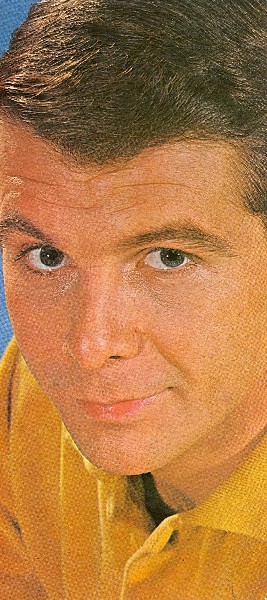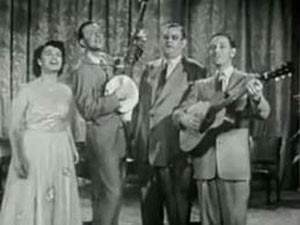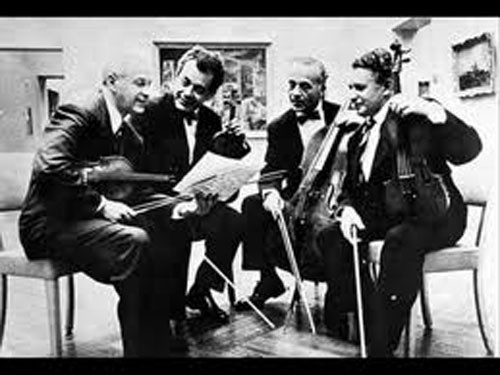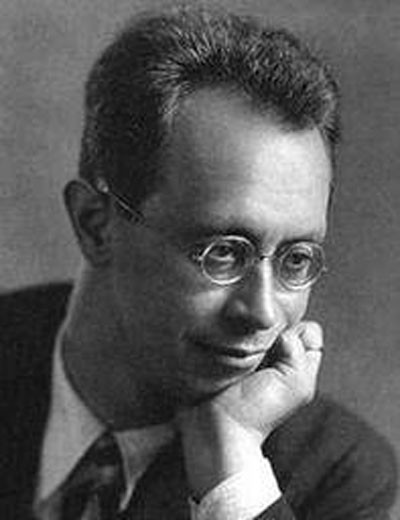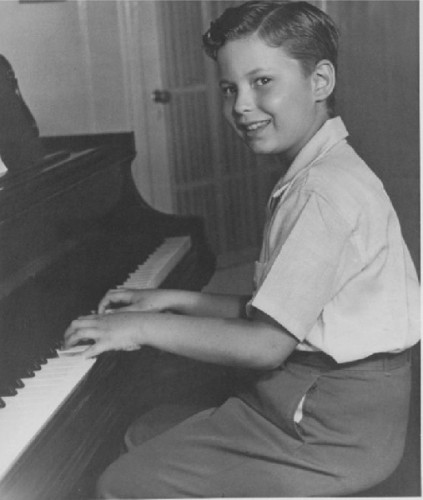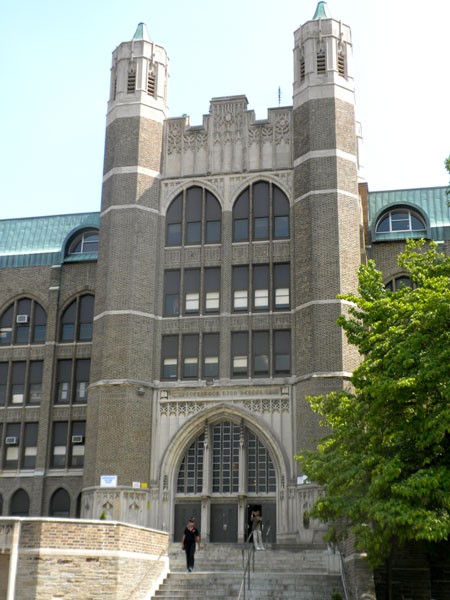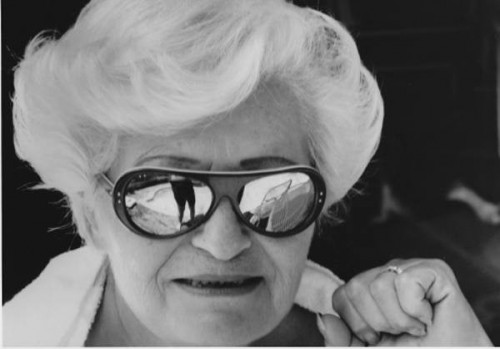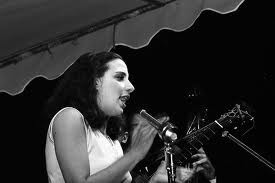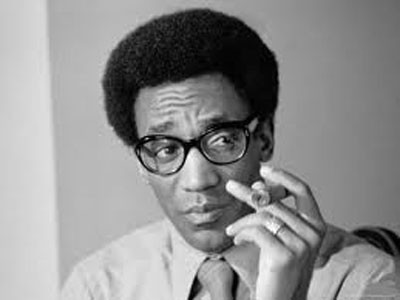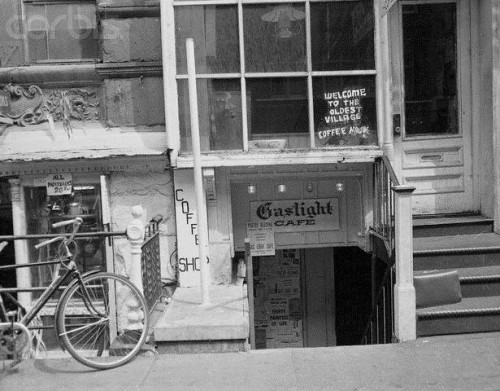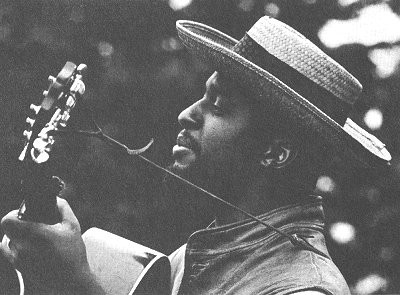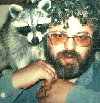A Conversation With Herb Gart - Part I
The Early Days
By: David Wilson - Apr 19, 2012
While I have known of Herb through mutual acquaintances for near half a century, and through a multitude of message exchanges here in cyberspace, I do not believe that we have ever had a conversation of any length in person. Still, over the last year I have come to have great respect for his integrity, his clarity, and the hand he had in shaping the careers of many musicians.
Among the many entertainers he managed were Bill Cosby, Tim Hardin, Buffy Sainte-Marie, Pat Sky, The Youngbloods, Don McLean, Mississippi John Hurt and Ed Begly, Jr.
At the millenium, four of the records Herb produced were on most best record lists! "American Pie" by Don McLean was in the Top 10 on all lists, his hit "Vincent" was also in the Top 100; "At Seventeen" by Janis Ian made most lists and "Get Together" by The Youngbloods was in the Top 100 on many lists.
If more reason for this interview be required, let me say as well that the form of the music that evolved out of '60s folk music owes much to the input and choices Herb made along the way.
Herb is forthright and seldom minces words. I would no sooner modify or temper his words than I would allow the same for mine. Therefore be aware that opinions and observations shared here are those of the individual who offers them.
*****************
David Wilson Herb, let’s start at the start. How did you first become involved with folk music?
Herb Gart One night on Arthur Godfrey's Talent Scouts I saw Bob Gibson. I found I liked songs that told a story. (A Gibson Video)
Sometime later I saw The Weavers on The Merv Griffin Show. I still remember them standing around a glider with Ronnie Gilbert and Lee Hayes sitting and Pete Seeger and Fred Hellerman standing. There were fake flowers and vines on the swing and they sang “Goodnight Irene,” another story song I liked.
At the time I was into Johnny Ray, Johnny Mathis, West Side Story and classical music, especially Rudolf Serkin playing Brahms, The Budapest String Quartet, (their second violinist once tried to teach me violin and ended up throwing me out of his rehearsal room,) the other two B's,(Bach and Beethoven), Mozart and Vivaldi.
My curiosity aroused, I eventually found myself at The Gilded Cage, a coffeehouse in center-city Philly. (Ed & Esther Halpern talk about The Gilded Cage)
DW I remember watching that show every Monday night, although I don't remember Bob Gibson being on it or of many others for that matter. That must have been in the late '50s so you must have still been in your teens at that time. It also sounds as if you already had wide ranging musical interests. What part of that, if any, did you get from your parents? Was there a lot of music in your home?
HG Not really. There was an appreciation of music and my mother played piano dreadfully. However, another trait she had was to not recognize any boundaries; so when I was 5 she saw a two-page rave review of a concert pianist who had just played with the Philadelphia Orchestra and happened to live in Philly.
She thought that the pianist would be good enough to be my teacher, so she called her and, as luck would have it, the teacher Yvonne Druian, was just considering the idea of training someone from scratch.
So at 5 I began to take piano lessons from one of the best! Her system of teaching concentrated on the emotional as well as the intellectual content of the composer. She taught me to listen to what the performer INTENDED as well as what they were capable of doing that night.
DW That sounds like an important skill to have.
HG That is, (I believe,) the entire secret to my understanding great talent early - before they have sprouted their wings.
Another kind of listening was also involved. Yvonne Druian, had studied at Curtis Institute from the age of 12 and her piano teacher was the great Josef Hoffman, who, it is said, had such amazing tone (control) that he could play a 10 finger chord and give each note a different tone. If he was off a fraction of an inch on the sustain pedal (he had 4 different degrees) he considered it a wrong note! In an interview he said of Yvonne Druian "she plays as I hear".
So I was listening to sounds in the most intense way as well as emotional and intellectual content.
When I was eight, I was preparing to audition for the Philadelphia Orchestra summer children's concert series. In a moment of frustration she shouted at me to do it again and then told me I had to give up the cub scouts so I would have more time to practice. So I quit piano lessons. The part that I didn't understand as the years went by is why my mother didn't force me to continue.
DW Did you ever ask her?
HG Only a few years before she died, she told me there were two reasons: the difficulty she had taking me into center city by bus and subway every week and, although she didn't realize it at the time - she was jealous
At any rate, my gross mistake stood.
DW Did you ever return to the piano?
HG When I was 16, my parents celebrated my birthday by taking me to see West Side Story in its pre-Broadway tryouts, when everything was intense and magical. It changed my life. I went back to Yvonne Druian for a couple of years including auditioning for Temple University's music department, telling them that I must keep my piano teacher. After the audition (which was the first and last time that everything fell into place and flowed under my absolute control and freedom) they said that I could and should keep my piano teacher. A couple of years later, I stopped playing again because the difference in what I could hear and what I could do was too painful for me.
I tell you all this because my primary motivation as a manager was to prevent other artists from making such stupid mistakes.
DW Clearly your experiences provided you with a sensitivity to musical expression well before you got involved with the business. What was your first endeavor in the business and how did it come about?
HG In 12th grade at Overbrook High School, I temporarily joined the local Socialist Youth Union and I learned that, regardless of their politics, they primarily had a real concern for the common man versus money.
But the main thing I took from the experience was an appreciation for the folksinger, Alix Dobkin. Her talent was raw but I found her exciting, so after a couple of years of being a fan I decided to help her get gigs.
I didn’t do it to be a manager as much as wanting to help an artist I liked. I had no idea what I was getting into.
DW How did you try to help her and what were the first indications you had of the job you had taken on?
HG My first inkling was when a new club I had booked her into fell behind in their renovations and looked to be opening later than planned. I went in there and helped them finish laying the floor and painting and more - just to get Alix to be their opening act. Of course, they opened on time. Alix did well but the club didn’t draw any audience except on Saturday. They closed pretty quickly.
So Alix became my first client. At one show she did at Woody’s Bar on Broad Street, the MC for the night was a classmate of mine at Temple University, who, until that night, was a nodding acquaintance - Bill Cosby. He was also raw and doing primarily Flip Wilson material. I flipped.
DW And did you have more to do with Bill Cosby then?
HG As of that night at Woody's Bar he became my second client. I was already taking trips to New York's Greenwich Village and summer vacation was a few months away, so Bill, Alix and I decided to make the Village our home for the summer. Woody (Woody's Bar) suggested to Bill that we check out the Gaslight Cafe on MacDougal Street - some of the best advice I ever was party to in my career. I brought Alix up to audition for them and they liked her and booked her for the summer. In those days in the Village you could play at one club for an extended period of time. A few weeks later I brought Bill in to audition. They loved him and booked him for the summer. I brought up a third client, a folksinger in the Harry Belafonte vein, Kenny Snipes. They liked him and booked him for two weeks.
When we showed up for our first week’s booking, we had quite a shock. The owner and his wife had left the club in the hands of the father-in-law, an old man from Mississippi, Clarence Hood.
Mr. Hood knew nothing about the bookings and wanted them to audition again. I showed him in the booking book the dates and said we made our entire summer plans around the booking and shouldn't have to audition again. I struck a deal that they would play for two weeks and if he wasn't satisfied, then we would pack up and go home. He accepted.
Mr. Hood knew nothing about folk music or the business. We hit it off and when he asked me if I would help him book the place, I agreed. I told Mr. Hood that there were a couple of performers on his stage that had been there for months and were taking the gig for granted to the point of checking their watches on stage and giving perfunctory performances.
"They're both exceptional talents but I would like your permission to fire them as my acts are booked anyway next week. Of course we'll hire them back but they won't take it for granted any more.”
So, the first time anyone in the Village heard my name was when I fired Tom Paxton and Len Chandler and replaced them with my 3 acts from Philadelphia! The folk community of Greenwich Village was very upset. They complained to Mr. Hood, who backed me up. As it turned out Kenny Snipes became sick after a few days and had to quit, so Mr. Hood allowed the folk community to choose his replacement. They replaced Kenny with Hal Waters, a fine ballad singer - who happened to also be from Philly!
Tom Paxton and Len Chandler came to see the show and loved Alix and Bill. Len Chandler immediately forgave me but Tom Paxton never really did. Of course, when they played the Gaslight, they no longer gave less than their best.
DW I am not familiar with either Hal Waters or Kenny Snipes. Did they continue in the business?
HG Hal Waters continued in the business for years. I don’t know what happened to him; Kenny Snipes never really got into the business and loved his work at the YMCA
DW How long did you continue your relationship with Bill?
HG I managed Bill by myself for only a few weeks after we hit New York. Bill's football coach at Temple knew someone at the New York Times and arranged for a review. Dick Gregory was hot at the time, so finding another talented black comedian was big news. The review was enthusiastic, as it should have been, and long - almost a feature story. Bill complained that they called him a black comedian. I wasn’t sure that that was a reasonable reaction to a great review. I learned over time that Bill was right; he wasn’t a black comedian - he was a great storyteller for all people. I knew I was in over my head so I brought Bill to my only manager friend in New York, Len Rosenfeld.
Len managed Josh White, Odetta and several other great artists. We had met when I called him from Philly to arrange an Odetta concert I wanted to present at Town Hall. He knew she wouldn't draw well enough to fill the hall, so he talked me out of it. He realized I was green, came to Philly to meet me and befriended me.
I made a deal with Len to manage Bill and let me retain an interest. By the end of the summer, he had lost Bill to Ron Silver, who became Bill's manager for years.
I used to say that when we came to New York the funniest thing about Bill was that I was his manager. I have since regretted not continuing to work with him. Even though I knew so little then, I soon learned that successful managers didn't know much more and my instincts had been right. C'est la vie.
DW It sounds as if you jumped into the business with some savvy, none the less.
HG One experience that helped ready me for the job was a radio show on WHYY-FM called Potpourri that I had started on a tiny station at Wireless Technical Institute. Jim Keeler, the Program Director at WHYY heard me and invited me to do the show on PBS. The show was as eclectic as is possible to be. One night you might hear Beethoven, Harry Lauder, John Lee Hooker live and the Goon Show from the BBC.
DW Reminds me of a show I had on MIT’s WTBS-FM. I called it Coffeehouse Theatre and got to play all sorts of things that I liked. It confused a lot of people, especially station management.
HG The show made waves occasionally, like when I challenged the ability of Eugene Ormandy to conduct the Philadelphia Orchestra. I demonstrated my point by playing Rachmaninov’s 2nd Piano Concerto, first by Ormandy with Istomin at the piano and then played it again with Stokowski conducting the Philadelphia Orchestra, Rachmaninov at the piano.
Another time I had John Lee Hooker on live and we were both getting drunk on the air. Jim Keeler rushed from his home to the studio to stop us. I almost got fired. I did get fired a few months later when I played a repeat show and forgot that the tag was about a show that had given Jim apoplexy and was not the next show. …Especially since that was my last show.
******************************************
Videos and More Videos
******************************************
Bob Gibson
(back to text)
Ed & Esther Halpern of The Gilded Cage
(Back to text)
Good Night Irene - The Weavers
(Back to text)
Arthur Godfrey's Talent Scouts
Bill Cosby's Noah
A Conversation With Herb Gart – Part I
A Conversation With Herb Gart – Part II
A Conversation With Herb Gart – Part III
A Conversation With Herb Gart - Part IV
A Conversation With Herb Gart - Part V
A Conversation With Herb Gart - Part VI
A Conversation With Herb Gart - Part VII


